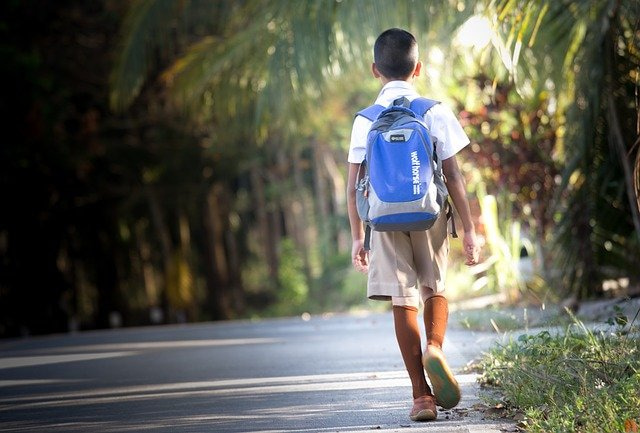The coronavirus pandemic has affected our world in so many ways and we aren’t in the clear yet, despite vaccine availability. The virus continues to evolve, which is especially concerning if you’ll have children attending in-person classes this fall; as children head back to school, they do so under the specter of the Delta variant of Covid-19.
The pandemic response is deeply impacting our children. Virtual learning has become common, so kids who will be attending traditional classrooms this year may not have done so during the last school year. As a result, they may need to cope with new rules and regulations designed specifically for the safety of all students. In addition, extra-curricular programs like sports or clubs may be closed due to fears of exposure. It is also likely our children will have less of a chance to gather with friends at school as teachers and administrators attempt to maintain social distancing.
What Is The New Delta Variant Of Covid
The Delta variant, originating in India and first making news around the middle of June, has caused concern among health experts as cases become more prevalent.
The new strain is spreading more rapidly than COVID-19 strains before it. In fact, the Centers for Disease Control and Prevention reports that the Delta variant is now responsible for more than 80% of new cases in the country.
Delta is different from prior variants because it is not only much more contagious, it also grows more rapidly in the respiratory tract and is making people sicker faster.
Are Children At Lower Risk Of COVID-19 Than Adults?
Originally, Covid-19 was affecting mostly older adults. Children were less vulnerable to the virus. That is no longer the case. Because the Delta variant is so transmissible and vaccines aren’t yet available for children younger than 12, kids are now at a higher risk of contracting Covid than they have been in the past.
Research, however, has proven that vaccination is an effective way to protect against COVID-19. For this reason, it’s safest for all children 12 years of age and older to be vaccinated from the disease. However, unvaccinated children are also safe in the classroom as long as they take precautions such like masking and limiting social contact during their time at school.
Delta Variant Symptoms In Children
The symptoms of the Delta variant are basically the same as those we all know by heart now: fever, coughing, shortness of breath, headache, and the possible loss of taste and / or smell. The problem with the Delta variant is the fact that it has a greater chance of becoming serious – especially among the unvaccinated.
Delta Variant Back To School Safety Tips
After vaccination (which may be available to kids younger than 12 by the end of 2021), wearing a mask is the most important thing your children can do in the classroom. This goes for school staff and teachers, as well – regardless of vaccine status.
Although schools will try to keep kids socially distant, this can be a challenge when they are indoors. It may be hard for them to physically distance themselves from friends after possibly spending the last year separated from them through virtual learning. In addition, the fact that they have to stay socially distant can create anxiety for some kids who may fear that others will get sick and pass the virus on to them.
We know that children naturally crowd together during more social times, such as at lunchtime. While recent studies have shown that we only need to be three feet apart (instead of six), you will still want to teach your child the importance of wearing their masks at all times, except when actively eating or drinking. Also, remind your kids to wash their hands often during the school day and teach them to cover their sneezes and coughs with their elbow.
At the same time, try to avoid making your children feel overly cautious to the point that they are afraid to do anything. While it’s good to make them aware of their part in helping to stop the virus’ spread, it can be upsetting and frustrating for them to be constantly on guard and worrying about everything little thing they do.
Lastly, it’s important to make sure your child’s school has good policies in place to limit infection. Since masking provides extra protection against the virus, there should be a universal masking requirement in the school. In addition, the school should take steps to immediately quarantine students or staff who show signs of being symptomatic.
To support your child’s mental health during this school year, remember to keep to a routine. Doing so gives kids a sense that things are under control. Also be sure to foster an environment in which your children know that you are willing to discuss any worries or fears they might be facing.
We Are Here For You
If you are concerned that your child is struggling emotionally or showing signs of pandemic anxiety or depression, contact The Children’s Center for Psychiatry Psychology and Related Services in Delray Beach, Florida or call us today at (561) 223-6568.

